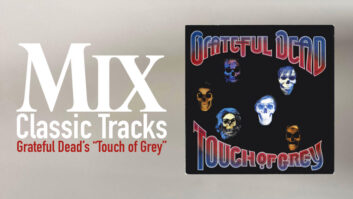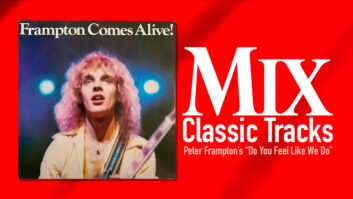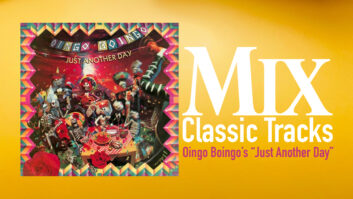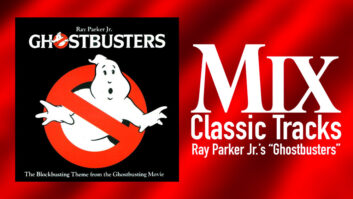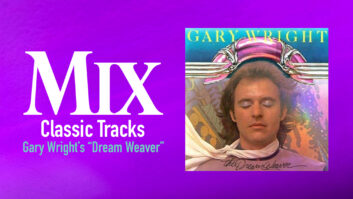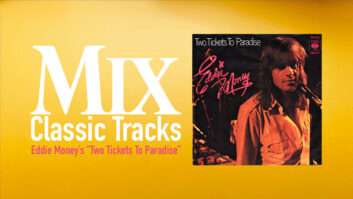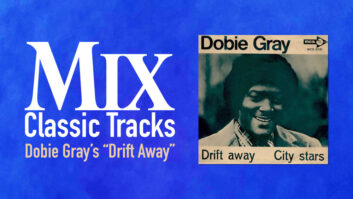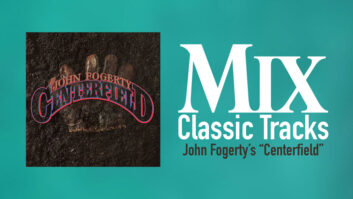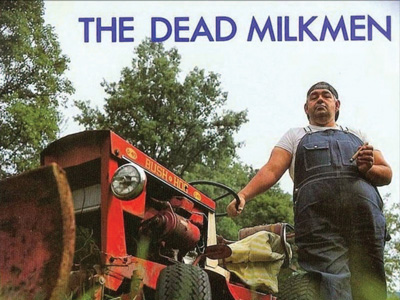
The story behind this Classic Track, “Punk Rock Girl,” is a tale of two musical cities: Locales in the Dead Milkmen’s hometown of Philadelphia figure memorably in the lyrics, as the narrator takes a walk to punk clothing shop Zipperhead and later orders some hot tea at the Philly Pizza Company. But the track was actually made in Austin, Texas, where the musicians’ friend and producer Brian Beattie is based.
“The song idea came when… I had graduated from Temple University and I was working in their library, hanging out with people in other bands, and someone was talking about a punk rock nursery song they wanted to write,” says Dead Milkmen guitarist/songwriter/singer Joe Genaro (aka Joe Jack Talcum). “I thought, a nice little punk-rock love song would be cool, from the perspective of a guy who wasn’t a punk rocker. He’s attracted to a punk rocker girl.”
Lyrics and melody started to come to Genaro, but he wanted a little help, so he took his song to Dead Milkmen bassist Dave Schulthise (aka Dave Blood). “I said, ‘I’ve kind of run out of things that rhyme with girl,’” Genaro says. “He said, ‘How about Minnie Pearl?’ That was good. He also came up with the line, ‘Do you have a beau?’”
At first, Genaro didn’t think the song was right for the Dead Milkmen, but he and Schulthise did perform the song live as a duo, in a side project called Ornamental Wigwam. “We got a good response, and somebody at one of the shows said, ‘You should turn that into a Dead Milkmen song.’ But the song was around for a while before we asked the other guys if they wanted to record it.”
“Punk Rock Girl” finally made it onto the band’s fourth album, Beelzebubba (Enigma, 1988), the second full-length they made with Beattie. “When I first met those guys, I was playing in a four-piece art/alt-rock kind of band called Glass Eye,” recalls Beattie. “At that time, the Dead Milkmen had recorded their first album [Big Lizard in My Backyard, Restless Records, 1985] but it wasn’t out yet. We played in Philadelphia at [a festival] called the Human BBQ. The Dead Milkmen were also playing and, being sweethearts and all, some of the guys invited us to spend the night; we always needed a floor to sleep on. I remember that night they played me their new record and I heard ‘Bitchin Camaro’ while I was falling asleep. It was a surreal kind of experience.”
Over the next few years, Beattie and the Dead Milkmen crossed paths, playing shows together and hosting each other in Austin and Philly. “It was a fast friendship,” Beattie says. “We talked about wanting to work together, and eventually their manager asked if I would produce them.”
Beattie produced the band’s third album Bucky Fellini (Enigma, 1987) and its follow-up, Beelzebubba (1988). “We liked working with Brian, but he just wouldn’t leave Texas,” Genaro says. “We found a house to rent in Austin for about a month or so. It had a pool. We felt like rock stars.”
After a week of pre-production and rehearsals, Beattie took the band to Arlyn Studios, where Mike Stewart engineered their sessions. Then a recent transplant from Oklahoma City, Stewart remembers Austin in the ’80s as a time when “there was a lot of creativity and a lot of records being made, but not a lot of infrastructure.” It was a busy time for Stewart, and a time when an indie punk budget went far enough in Austin for the Dead Milkmen to record in an API/Studer 820-equipped facility.
“The API that was in their control room had different EQs and compressors that you could insert; you literally pulled them out of the console and stuck new ones in when you wanted to change your sound,” Stewart says. “It’s the same principle they used with the Lunchbox.”
Beattie, Stewart and the band worked civilized workweeks at Arlyn, starting with coffee in the morning, then heading out for breakfast tacos or burritos from the same place each day, Seis Salsas. They would be in the studio by 10, Genaro says, and stay there until 7 or 8 at night. No work on the weekends.
Stewart set up the musicians together in Arlyn’s main tracking room, approximately 30 by 40 feet, where they recorded basics live as a band, with guitar and bass amps situated in an adjacent iso room. “But if someone wanted to hear his ‘more,’ he could jump into that room,” the engineer says.
Genaro’s guitar amps included a Silvertone that Beattie had and a small Kay amp that he says had an overdriven sound. “We used a split box and ran two amps at once,” Beattie recalls. “We could choose or blend those.”
For those basics, Stewart doesn’t recall 100 percent which instrument microphones he used, but he can narrow it down: “Guitar mics were more than likely older, transformerless [Shure] SM57s, but I also remember using a couple of old [Neumann] U87s that we would place two or three feet away,” he says.
On Dean Sabatino’s (aka Dean Clean) drums, Stewart says, “It was always a 57 or an [Electro-Voice] RE20 on kick, sometimes with a U67 or U87 out front. There were various room mics; Stuart Sullivan [another Austin engineer who helped with the Beelzebubba sessions] had a great pair of older Schoeps that I loved—those ones from the ’50s and ’60s didn’t go higher than 5k. We would use those for room mics often, because they let just enough of the cymbals come in and helped with a great snare sound in the 1 to 2k range. We would use [Sennheiser] 421s or U67s or 87s on toms. I’m almost certain we had a 57 on snare. We rarely used snare bottom mics. The close overheads were almost always [AKG] 451s or [Shure] SM81s.”
Beattie recalls that Schulthise’s Musicman bass went through a DI, as well as a Montgomery Ward bass head and Ampeg B15 cabinet that was miked with a 57.
Overdubs for “Punk Rock Girl” included the accordion part that comes in after Genaro’s guitar solo. “Brian suggested the accordion,” Genaro says. “I had never played accordion before, but Brian lent me one on a Friday and gave me the weekend to learn how to play it. On Monday I played it as much as I could, but I didn’t get good enough. So he said, ‘Why don’t you play just the right hand—play a melody.’ He tracked the left hand himself, and he got the oompahs just where he wanted them. Now when we play live, Rodney [Linderman, aka Rodney Anonymous] plays the accordion part on his keyboard.”
Linderman sang lead on most Dead Milkmen songs, but Genaro would typically front one song per album. Because Genaro wrote “Punk Rock Girl,” that tune, which was intended to be the album’s first single, became his one song to sing on Beelzebubba; he sang a scratch vocal during basic tracking, and later overdubbed the keeper part via a Neumann U47.
“We finished recording all the instrument stuff and then we did all the vocals at once,” Genaro says. “It was like, ‘It’s vocals week now.’ And sometimes it would be like, ‘That’s as good as it’s going to get today, Joe. Try again tomorrow.’”
During tracking, Stewart and Beattie made use of the mic pre’s and processing in the API, as well as the studio’s selection of outboard gear, including Pultec, UREI and dbx compressors. To vary the sounds they captured, they also moved between different spaces within, and without, the studio. There was the piano room where amplifiers were usually placed, and a small acoustic-recording room that Stewart says made pretty much any acoustic instrument sound amazing; and then there was some bonus space that adjoined Arlyn Studios, which was built into a former hotel owned by Willie Nelson.
“The studio was built in an area where there used to be a restaurant, and attached to the former restaurant kitchen was an event center that used to be called the Opera House,” Stewart explains. “Someone had put a door from the acoustic room so you could go through to this huge back room. It wasn’t part of the facility, but it wasn’t being used for anything else. The roof leaked when it rained and there was no insulation, but we would stick guitar amps back there and sometimes drums, and we would string mics back there.”
During the mix, Beattie remembers, he concentrated quite a bit on Genaro’s guitar solo. “On the demo, the solo sounded tossed off, like, ‘I don’t remotely give a shit,’ and I wanted some of that badness on the track,” he says. “I wanted it blown out and random-sounding. I remember pushing the compression more and more, probably with a Blackface 1176 that they had. It was weird to keep compressing it more and more, but it just kept sounding more right.”
The final touch that Beattie and Stewart put on “Punk Rock Girl” was to double the full-band vocal line at the end of the song: “Just you and me, punk rock girl!”
“When we put both tracks in, it sounded splashy, and I said to Joe, ‘It sounds a little like ‘It’s a Small World After All,’” Beattie says. “Joe looked horrified, like, ‘No No! It’s not supposed to be like that!’”
Fortunately, that’s not the connection listeners made. The tune, and a madcap video shot partly in a former Philadelphia penitentiary, caught fire with alt-rock and mainstream music fans. “Punk Rock Girl” rose to Number One on Billboard’s Alternative Songs chart.
Today Beattie and Stewart are still working with local and national artists in Austin, where many more pro and personal recording studios have emerged and come of age. And Arlyn is still going strong.
The Dead Milkmen made one more album with Beattie, and then two more in Philadelphia before deciding to disband in the mid-’90s. The passing of Schulthise in 2004 seemed to be the final blow, though the band performed with bassist Dan Stevens at Schulthise’s memorial.
However, in 2008 the band was asked to reunite at a festival in Austin. With Stevens on bass, the Milkmen enjoyed themselves and decided to re-form. At press time, they were ready to release their latest EP on the Philly-based Giving Groove label, which donates half of its profits to music charities chosen by the bands.
“We’re giving to Girls Rock Philly,” Genaro says. “We like girls, we like rock, and we like Philly.”
